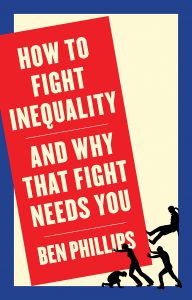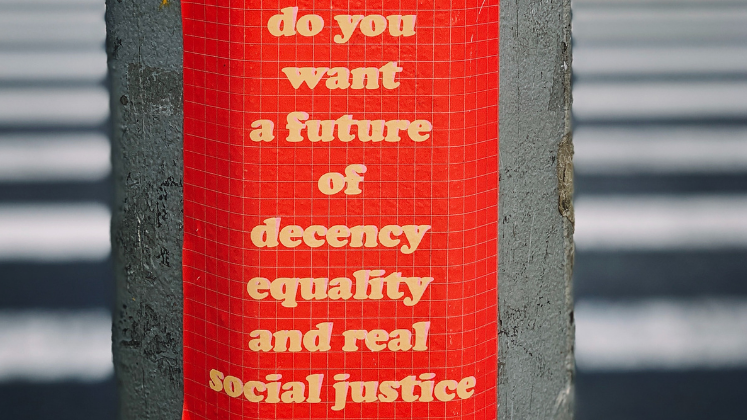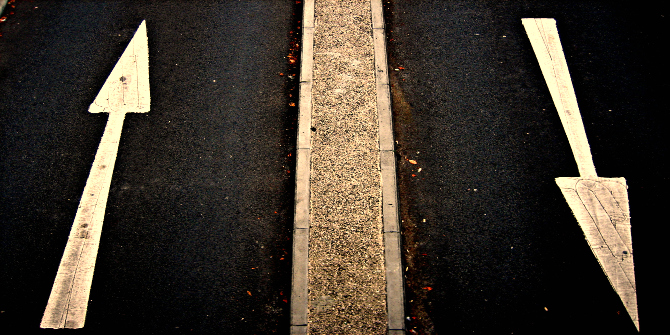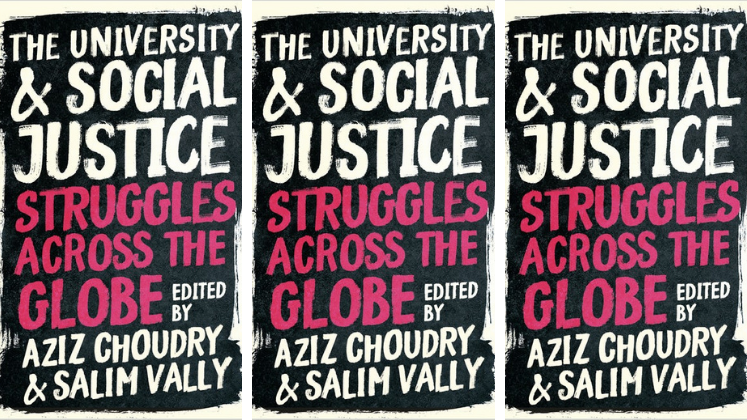In How to Fight Inequality (and Why That Fight Needs You), international civil society activist Ben Phillips offers a new book that aims to empower readers to join the fight to bring an end to inequalities, showing how lessons from the past are key to building a more equitable future. Filled with powerful stories of change secured through the organising of ordinary people, this well-written book provides valuable insights for those who want to engage in a more just world, finds Samira Azabar.
If you are interested in this review, you can watch a video or listen to a podcast of Ben Phillips discussing his book alongside Masana Ndinga-Kanga, Pedro Telles and Dr Armine Ishkanian at an LSE International Inequalities Institute event, recorded on 18 March 2021.
How to Fight Inequality (and Why That Fight Needs You). Ben Phillips. Polity. 2020.
 The COVID-19 pandemic has revealed devastating inequalities more than ever, making the unthinkable possible: namely, the beginning of the end of a neoliberal era. The call for a more robust government tackling inequalities is louder than before, shaking up the status quo. This is reflected in debates advocating for more (equal) redistribution, wealth taxes and basic income. However, the battle must be fought if we want to overcome these widening inequalities.
The COVID-19 pandemic has revealed devastating inequalities more than ever, making the unthinkable possible: namely, the beginning of the end of a neoliberal era. The call for a more robust government tackling inequalities is louder than before, shaking up the status quo. This is reflected in debates advocating for more (equal) redistribution, wealth taxes and basic income. However, the battle must be fought if we want to overcome these widening inequalities.
In his book How to Fight Inequality (and Why That Fight Needs You), Ben Phillips urges for readers to join this battle, arguing that ‘winning the fight against inequality needs you’ (8). His three-part book consists of elaborating on why we need to win the fight against inequality, how we won the fight previously and how we’ll win the fight again. As a historian and stalwart campaigner, he draws on the hard lessons of history and many years of expertise as an international civil society activist (working for Oxfam, ActionAid and Fight Inequality Alliance) with the aim of empowering readers to bring an end to inequalities.
Although ‘today’s inequalities are recognized as harmful and dangerous by mainstream economists’ (3), the big disparities of wealth are worsening and harm us all. Summing up examples, the author easily crashes the myth that economic growth and reducing poverty go hand in hand. In addition, by blaming society’s problems on ‘the Other’ (characterised by race, ethnicity, religion or sexuality), an upsurge of injustices against the most marginalised is taking place, with the risk that ‘ethics and values [come] to be reshaped by economic imbalance’ (21). The author points out that relying on policymakers is not enough to shift inequality due to conflicting interests. History has taught us that it is only when people come together ‘to overcome deference, build our collective power and create a new story’ (6) that profound changes are possible. According to Phillips, understanding these lessons from the past is key to building a more equal future.

Image Credit: Photo by Jon Tyson on Unsplash
The second chapter on how we won the fight before is full of inspiring examples revealing how governments’ decisions have reduced inequality. More so, it shows that these progressive measures were only possible due to the organising of ordinary people. The detailed cases on how grassroots movements influenced not only the consequences of inequality, but also the structures making inequality possible, could inspire future victories. Clearly, it is people’s pressure that is vital, ‘because without it there is no counter to the permanent pressure from elites’ (44). Put differently, ‘freedom is never voluntarily given by the oppressor, it must be demanded by the oppressed’ (55).
Interestingly, Phillips emphasises that we can learn from our opponents by analysing how the neoliberal paradigm became dominant in Western countries. ‘Apart from having luck and money, what else did they get right?’ (64) Neoliberals were first seen as cranks, but soon their ambition and audacious plan, paired with a resonant new myth, made them authors of a new norm. ‘They developed a way to sell their rather cold economic approach as being rooted in a much warmer yearning for freedom and respectability’ (66), mainly through stories told in mass media from magazines to movies. They made it impossible to resist the new neoliberal project by weakening their opponents.
Winning the battle against inequality thus requires power, ‘which for ordinary people is only ever collective’ (69). The counter-stories people develop of a more equal world is a crucial enabler and shaper of change. Indeed, while the oppressed may lack resources, the examples teach us that this can be overcome by a deeper moral force yearning for justice and freedom. Key in this is realising that success neither just happens nor is given, but rather is fought for by communities who were earlier labelled as troublemakers before they were recognised as frontline heroes. So, ‘any struggle to be successful needs sacrifice and there is no short route to that’ (75).
The mantra of ‘there is no alternative’ (TINA) will be repeated by those in power to make us believe that obscene inequalities are inevitable. Challenging power will be therefore accompanied by a fierce backlash of powerful elites who will not make way unless they are pressured to. Here, ‘government needs to be put right, not pushed back’ (79) in order to obtain structural changes. A broad set of inequality policies is therefore essential. Specific demands are fleshed out by NGOs and academics and discussed in the book. These include increasing investment in public services and in public infrastructure, providing social protection, widening access to land and redistributing large private holdings, raising minimum wages to living wages and recognising, redistributing and reducing women’s unpaid care burden.
Phillips, an experienced campaigner, acknowledges the big agenda, but stresses that we are not suffering from a dearth of ideas but from how to make such change possible. He repeatedly states that ‘power for change always comes from below’ (86). There is no need to wait for the powerful to share their power or for leaders to arrive. Change will involve us, the people. Although activists are told that their disruption prevents a reasoned debate, it is nothing more than a strategy to silence them – as they have tried with yesterday’s ‘awkward squad’ who are today’s historical heroes (for example, Martin Luther King, Harriet Tubman and Sojourner Truth).
Second, the building of power ‘takes time, organising, nurturing, being deliberate, feet to the street and being rooted in the community’ (99) to be strong enough to act. Also, we need to reflect, learn and adapt from choices made to tackle inequality. Lastly, the author concludes that a good story – referring to how we build our society together – that resonates in the particular social and cultural environment is indispensable. It should be a story of hope that we can bring change through our own actions.
These three lessons are also the common thread of this well-written book, filled with powerful stories of change won by the seemingly unpowerful through organising. The book mainly provides valuable insights aimed at defeating inequality (again) by looking at how the fight has been fought before. Unfortunately, the book – in my opinion – cannot be really seen as a practical guide in how to do so. The author voices how ordinary people can join the fight in rather vague terms: that is to organise, build power and create a story of hope. Second, due to the specificity of the author’s position as a campaigner in international NGOs, it gives the (probably unintended) impression that the struggle can only be on that level. Phillips briefly touches upon this matter at the end of the book, writing ‘the first we, is necessarily local – but from this it builds out’ (114), again stressing the broader international movement as the fight. Oddly enough, one of the most powerful sections of the book is the appendix where he elaborates on the local fight and how people can engage in an accessible way.
Nevertheless, this book is worth reading to remind us all of why we need to win the fight against inequality and how we won this fight before, providing valuable insights for those who want to engage in a better and more just world.
Note: This review gives the views of the author, and not the position of the LSE Review of Books blog, or of the London School of Economics.







